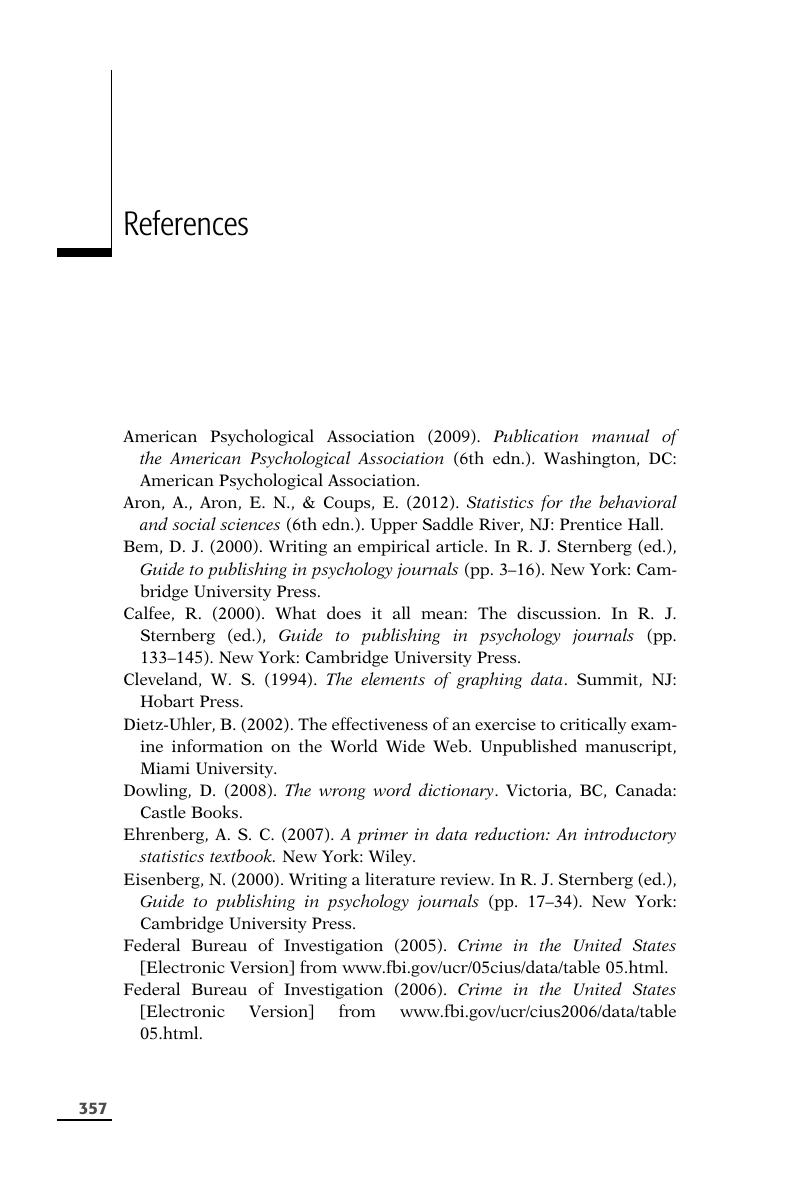 The Psychologist's Companion
The Psychologist's Companion Book contents
- Frontmatter
- Contents
- Preface
- Acknowledgments
- Introduction
- Part I Macro-Challenges in Writing Papers: Planning and Formulating Papers
- Part II Micro-Challenges in Writing Papers: Presenting Your Ideas in Writing
- Part III Writing and Preparing Articles for Journal Submission
- Part IV Presenting Yourself to Others
- Epilogue
- References
- Index
- References
References
Published online by Cambridge University Press: 24 November 2016
- Frontmatter
- Contents
- Preface
- Acknowledgments
- Introduction
- Part I Macro-Challenges in Writing Papers: Planning and Formulating Papers
- Part II Micro-Challenges in Writing Papers: Presenting Your Ideas in Writing
- Part III Writing and Preparing Articles for Journal Submission
- Part IV Presenting Yourself to Others
- Epilogue
- References
- Index
- References
Summary

- Type
- Chapter
- Information
- The Psychologist's CompanionA Guide to Professional Success for Students, Teachers, and Researchers, pp. 357 - 360Publisher: Cambridge University PressPrint publication year: 2016


